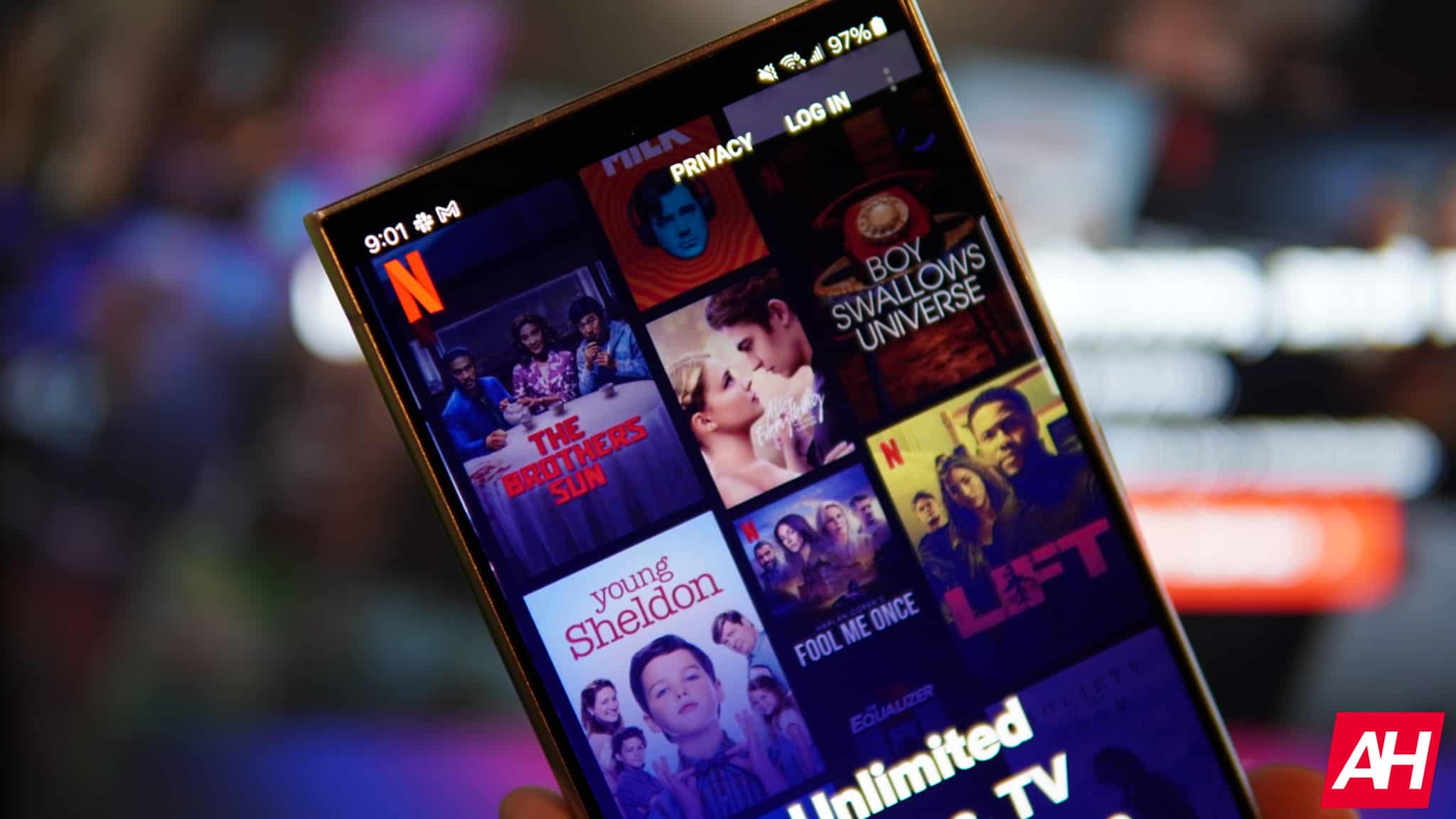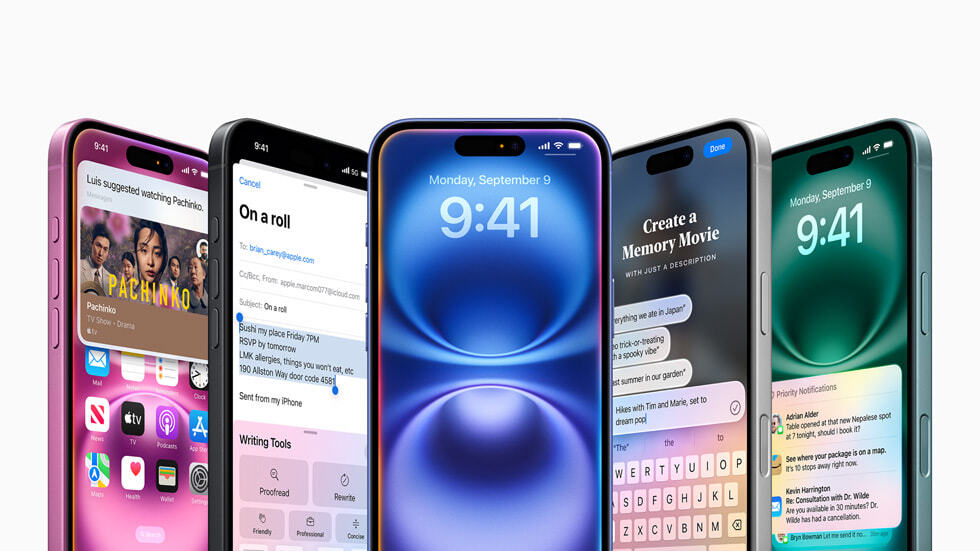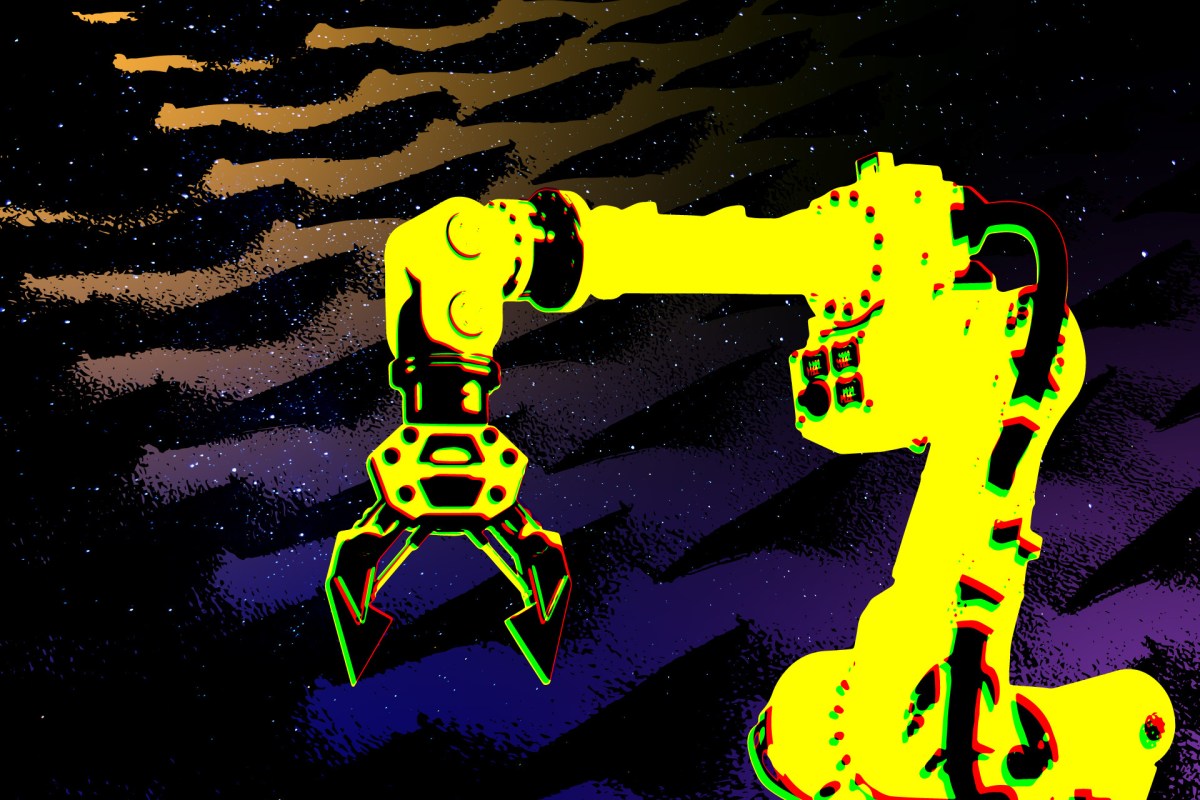Less than 12 hours after Scout Motors unveiled a pair of buzzy electrified vehicles last week, car dealers started threatening lawsuits.
Technology
Introducing the 2024 Startup Battlefield Top 20 Finalists at TechCrunch Disrupt

We can’t keep this secret any longer! The time has come to unveil this year’s Startup Battlefield Top 20 Finalists who will compete in a winner-takes-all pitch competition on the Disrupt Stage at TechCrunch Disrupt 2024.
TechCrunch editorial hand-selected 200 startups, out of thousands of applicants, to comprise the Startup Battlefield 200. This year, TechCrunch saw the highest number of applications from around the world and across many industries. Of the 200, 20 companies have been selected as finalists to battle it out on the Disrupt Stage for the $100,000 equity-free grand prize and the coveted Disrupt Cup. Less than 1% of applicants to the Startup Battlefield program are selected as a Top 20 Finalist, making it one of the most competitive startup programs in the industry.
As part of the Startup Battlefield 200, founders participate in a series of pre-event, virtual programming to help prepare them to pitch on the Disrupt Stage. In addition to extensive pitch coaching, this year’s programming included Founder Fireside Chats with legends like Kevin Ryan (AlleyCorp) and Marcelo Lebre (Remote), as well as VC panels with Sara Deshpande (Maven Ventures) and Ishani Thakur (Index Ventures).
This year’s Top 20 Finalists will follow in the footsteps of Startup Battlefield legends like DropBox, Discord, CloudFlare and Mint on the Disrupt Stage. With over 1,500 alumni having participated in the program, Startup Battlefield Alumni have collectively raised over $29 billion in funding with more than 200 successful exits.
The Startup Battlefield Top 20 Finalists were chosen for their potential for game-changing societal, environmental and financial impact. In addition to having ambitious visions, these startups demonstrated prospective early traction, strong founding teams, business model and market size in their applications. These companies are actively working to solve critical challenges in clean tech, SaaS, fintech, health tech, auto tech, entertainment, and manufacturing.
Starting today, the Top 20 Finalists will pitch and demo live on stage for six minutes followed by a six-minute Q&A with our expert panel of judges. These top-tier VC judges include folks like Navin Chaddha (Mayfield), Chris Farmer (SignalFire), Dayna Grayson (Construct Capital), Ann Miura-Ko (Floodgate) and Hans Tung (Notable Capital), just to name a few.
All 20 startups will pitch in semi-final showdowns on Monday and Tuesday and the top 5 finalists will be announced Tuesday evening. Those five companies will then pitch once more in the Battlefield Finals on Wednesday beginning at 11:30 a.m. and we will announce the winner at 4 p.m., all on the Disrupt Stage. You won’t want to miss it.
Now, the moment you have all been waiting for…. Here are the 2024 Startup Battlefield Top 20 Finalists:
Monday, October 28th, Disrupt Stage
Semi-Finals (Session 1): 10:35 a.m.–11:50 a.m.
NitroFix: Aims to reduce carbon footprints by optimizing ammonia production with zero emissions, relying solely on renewable electricity, water, and air.
ForestGuard: Dedicated to preventing wildfires with their solar-powered IoT devices and AI-assisted algorithms which allow them to detect fire hazards up to 80% earlier than traditional methods, reducing greenhouse gas emissions and improving air quality.
SpiralWave: A novel reactor that produces affordable e-methanol from flue gas or air and water in one step, eliminating captured CO2 and H2 feedstocks, without a catalyst.
Level Zero Health: Pioneering Continuous Hormone Monitoring with a simple patch device that you can wear on top of your arm for up to 2 weeks.
Solideon: Layers off-the-shelf robotics with proprietary software that creates multi-robotic, forward deployable micro-factories that are capable of 3D printing, post processing, assembling, and inspecting entire structures and vehicles without human intervention.
Semi-Finals (Session 2): 2:00 p.m.–3:15 p.m.
Advex AI: Helps the world’s largest manufacturers reduce costs and improve efficiency by providing highly reliable computer vision models in hours.
DGLegacy: Ensures that in the case of an unforeseen event, your assets won’t be lost and your loved ones would be able to claim their rightful ownership with a digital legacy planning and inheritance app.
VRTL: A virtual venue for entertainment organizations to deliver and scale in-person fan experiences to a remote, global audience, for greater lifetime values and data collection.
MabLab: Maker of 5-in-1, at-home rapid tests to screen for laced drugs and spiked drinks. Results delivered in under three minutes, potentially saving over 100,000 lives annually and preventing an additional 5 million hospitalizations every year.
Stitch3D: Offers a SaaS platform for hosting, processing, viewing, analyzing, and sharing large volumes of LIDAR point cloud data, all in a real-time collaborative 3D viewer.
Tuesday, October 29th, Disrupt Stage
Semi-Finals (Session 3): 10:05 a.m.–11:15 a.m.
HILOS: Unifies deep tech with sustainable craft to offer a software and manufacturing platform to design and launch 3D-printed footwear made locally, on-demand, without end-of-life waste.
CTGT: Removes barriers to production-ready AI, tailoring LLMs to company needs by eliminating unwanted content, enabling 10x faster AI deployment for critical applications like finance and healthcare.
luna: An AI-driven health and wellbeing companion for teens, so they can feel empowered to make informed decisions about their health and wellbeing as they move into adulthood.
Narada AI: A generative AI assistant that identifies tasks from conversations and executes them across enterprise tools using AI orchestration.
Salva Health: Julieta is a portable, AI-powered breast cancer detection device that eliminates barriers to early screening, ensuring access even in remote areas.
Semi-Finals (Session 4): 2:00 p.m.–3:15 p.m.
BANF: Ensures safe driving and optimizes fuel efficiency by 20% with their smart tire profile technology by providing real-time tire data, including pressure, temperature, wear, load, wheel alignment, and lug nut status.
ForceField: MARQ protects company, community & country data with tamper-proof badges. Patent-pending APIs defend against deepfake scams, fraud & breaches.
geCKo Materials: A bio-inspired Dry Adhesive that is ultra-strong, reusable, leaves no residue, and requires no force to detach. The product opens new applications in industrial automations, robotic gripping, space and defense.
Haptic: A B2B SaaS company creating a universal language through touch whose tactile technology empowers intuitive, safe navigation without visual or audio cues – enhancing accessibility and awareness for all.
MDC: Revolutionizing surgery with a novel robotic system that provides physicians direct access inside MRI scanners.
Wednesday, October 30th, Disrupt Stage
Alumni Update Panel: 11:15 a.m.–11:30 a.m.
Winner of Startup Battlefield 2023, BioticsAI is a clinical intelligence platform for prenatal health care utilizing machine learning to catch abnormalities in fetal ultrasound imagery, help doctors streamline their workloads by generating automated reports, and help with legal compliance to help reduce malpractice cases within the hospitals.
Winner of Startup Battlefield 2022, Minerva Lithium is a water treatment platform technology company leading the charge in sustainable Lithium Refining. Minerva Lithium selectively traps valuable minerals and other harmful pathogens from water.
2022 Startup Battlefield Runner-Up, Intropic Materials is imparting a favorable end-of-life at the beginning by embedding degrading enzymes directly inside plastics. Once activated, the enzymes trigger the plastic to rapidly and completely self-degrade into biodegradable or chemically recyclable small molecules.
Startup Battlefield Finals: 11:30 a.m.–12:50 p.m.
Winner Announced: 4:05 p.m – 4:20 p.m.
Haven’t snagged your ticket yet? It’s not too late! Join us at Disrupt 2024 to witness these outstanding companies pitch live on stage. Register here or when you arrive at the registration desk at Disrupt.
Technology
Netflix allows subscribers to share clips with ‘Moments’ feature

Netflix is now allowing users to share clips of their favorite shows and movies. The streaming giant has essentially introduced a new feature called Moments, but it is limited to the mobile app.
Netflix subscribers can share clips of their favorite content
Netflix is still one of the largest streaming companies. Hence, there are many shows, documentaries, and movies that continue to resonate with its subscribers. Netflix is now rolling out a new feature that allows users to relive moments from their favorite content.
The newly introduced “Moments” feature is similar to the Clips feature on YouTube and Twitch. It lets subscribers save, share and easily rewatch certain scenes from shows and movies.
Netflix has had sharing features for quite some time. There are hundreds of thousands of clips from Netflix floating around on multiple social media platforms. With the Moments feature, Netflix might be trying to boost engagement among its core audience.
Netflix announced the feature via a dedicated blog post. “Moments will hopefully expand in the future, offering even more ways for members to use and enjoy the feature,” the streaming giant announced.
How to use the Moments feature in the Netflix app?
Netflix has launched the Moments feature on its mobile app. Moreover, only Apple iPhone users will be able to use the feature for now. Android smartphone users will have to wait for a few days. Netflix hasn’t indicated if the new feature will make its way to smart TVs.
Netflix has assured that using the Moments feature is as easy as tapping on the smartphone screen. Whenever subscribers see a scene that they want to save or share, they just need to tap the Moments button at the top of the screen. The Netflix app will save a short snippet to the My Netflix tab.
Users will be able to jump back to Moments on your phone whenever they like. Netflix has indicated that episodes and films will start playing from bookmarked scenes when subscribers rewatch them.
The My Netflix tab could also be helpful to share content from Netflix on social media platforms. Even while creating a Moment, the Netflix app will allow users to share the bookmarked content on social media platforms or in messages. With Moments, Netflix has reportedly added an easy way to help users revisit favorite scenes and share them with friends
Technology
Apple Intelligence is now available with iOS 18.1 and macOS 15.1

The wait is finally over. Apple Intelligence is making its proper debut with the public releases of iOS 18.1, iPadOS 18.1 and macOS Sequoia 15.1 today. Typically, point-one versions of Apple operating systems add minor features and fix bugs, but this year it brings a major update since Apple Intelligence features weren’t quite ready in time for the rollout of iOS 18. Considering the new iPhone 16 series was touted as “built for Apple Intelligence,” but launched without the features they were built for, this release has been long in the making. Those with older devices are likely to find iOS 18.1 to be less dramatic of an update, since the iPhone 15 Pro and Pro Max are the only previous-generation iPhones that will support Apple Intelligence.
You’ll know you can use Apple Intelligence when you get a notification from the company. The initial generative AI features you can check out include writing tools like proofreading and rewriting, as well as text summaries.
There are live transcriptions available for phone calls and audio in the Notes app. Apple can helpfully generate summaries of these transcriptions. In addition, Apple can reorganize your photos and videos around memorable events such as trips and special events in the overhauled Photos app. You can create your own Memories in the app as well.
The beginnings of a Siri overhaul are here too. You can now type requests and questions to the previously voice-only assistant. If you still prefer speaking to it, Siri should be able to understand requests if you stutter or interrupt yourself. The Siri UI has been tweaked, as you’ll see a glowing border around the screen when you activate it. However, you’ll need to wait a bit longer for other Siri-driven features, such as the assistant’s ability to have a better understanding of your personal context.
Apple Intelligence on iPhone
Apple Intelligence is currently available on iPhone 15 Pro, iPhone 15 Pro Max and the iPhone 16 lineup. M-series iPads and Macs also support Apple Intelligence, as does the new A17 Pro-powered iPad mini.
Bear in mind that access is currently limited to those who set their device and Siri language set to US English. Apple Intelligence will start to become available in more countries and languages in December. Apple doesn’t plan to broadly offer the AI tools in the European Union or Chinese mainland right away due to regulatory issues, though as of September it was in talks with officials in both markets to make Apple Intelligence available there.
In addition to Apple Intelligence, iOS 18.1 adds support for other new features, such as a hearing test and the ability to use AirPods Pro as over-the-counter hearing aids. It should be easier to change the mail email address that’s linked to your Apple Account as well.
You’ll need to wait a bit longer for other promised Apple Intelligence features. The company released the iOS 18.2, iPadOS 18.2 and macOS Sequoia 15.2 developer betas last week. Along with additional writing tools, the betas include Genmoji (a custom emoji generator), Image Playground (animated- and illustrated-style image generation), the Google Lens-like Visual Intelligence and ChatGPT integration.
Apple Intelligence availability around the world
As for those who want to use Apple Intelligence in other countries and languages, Apple says that it is adding support for localized English in Australia, Canada, Ireland, New Zealand, South Africa and the UK in December. A bigger update in April will expand language support beyond English — Chinese, English (India), English (Singapore), French, German, Italian, Japanese, Korean, Portuguese, Spanish and Vietnamese are among the new languages that’ll be supported. Apple also says that unspecified “other languages” will be added, as well.
How to update your iPhone to iOS 18.1
-
Open the “Settings” app and tap “General.”
-
Tap “Software Update.”
-
Your phone will load the latest software update available. From there, you can either tap “update now” or “update tonight.”
-
Enter your iPhone’s passcode to start the update.
Update, October 28 2024, 12:15PM ET: This story was updated with notes on how to update your iPhone to iOS 18.1.
Technology
In-game advertising can help build brand loyalty, says Anzu, SuperAwesome report


Gaming advertising platform Anzu and kidtech company SuperAwesome recently released a new report on which they collaborated. The report, called “Gaming the future: how to make an impact with younger generations,” details the effects that in-game advertising has on younger gamers, including how it can inspire interest and brand loyalty.…Read More
Technology
Solideon wants to decentralize rocket manufacturing through 3D printing

Nearly five years after COVID-19 ground the world to a halt, the global supply chain still hasn’t fully recovered. Specialty industries like space travel were particularly hard hit, given the impossibility of heading down to the corner to pick up spare rocket parts.
Industries began taking a long, hard look at 3D printing as a solution to such woes. What additive manufacturing lacks in scale, it makes up for both in terms of creating specialty parts and decentralizing a manufacturing industry that is highly concentrated in a handful of locations across the globe.
Solideon co-founder and CEO Oluseun Taiwo saw firsthand the havoc such global events can wreak on the space industry. He was employed as a propulsion engineer in the additive manufacturing division of Virgin Orbit in May 2020, when the company failed to launch its LauncherOne rocket. Virgin Orbit’s journey ended in May 2023.
“What I saw at that time was, if we had a localized way to manufacturer and didn’t have to rely on the global supply chain during a global pandemic, the company would have done better,” Taiwo tells TechCrunch. “There was this hard thing of needing to build something like 30 rockets a year for the business model to work. We were doing maybe three a year, which was never good enough.”
Taiwo left Virgin Orbit in 2021 to work for 3D printing stalwart 3D Systems in 2021, before founding Solideon at Techstars the following year. The Bay Area-based rocket-printing service has raised $6.5 million in funding to date. It’s just a start, given the firm’s celestial ambitions. Solideon presented onstage today as part of the Startup Battlefield 20 at Disrupt SF.

“What we really do is build robots for deployable microfactories that help 3D-print and assemble large aerospace structures and products,” says Taiwo.
“The reason that matters is you can decentralize manufacturing and actually get closer to building an entire product without any human intervention in the loop. Our long-term goal is to do that anywhere in the solar system at any point.”
Manufacturing for space in space is still a ways off, naturally. In the meantime, the company is focused on solving more immediate-term problems, with an eye on defense contracts. Taiwo notes that the U.S. Defense Department is currently in the process of auditing its own supply chain, in anticipation of further disruption — be it a natural disaster or global conflict.
“The Navy is having the issue with very expensive assets,” he says. “The short term is to go help them solve that problem. The medium term that we’re more focused on is the smaller, autonomous, attributable systems. That’s where we’re seeing the biggest play for technology like this. Building a microfactory that’s very mobile that operates close to where the changing landscape of the conflict is and being able to adapt appropriately.”
Technology
Scout Motors’ plan to ditch dealers is exactly what customers want

Scout, which is backed by Volkswagen, thinks that dealers are history. It would rather sell its EVs directly to consumers, following in the footsteps of Tesla, Rivian, and Polestar in completely rethinking the business of car selling. But unlike those brands, it’s doing so while receiving financial support from an incumbent automaker: VW.
But if the company is nervous about challenging a century-old business model, it isn’t showing it.
“Scout is a 100 percent separate brand, separate entity, separate structure, separate everything,” Scout CEO Scott Keogh said last week, noting that the Scout buying experience will be “transparent, super fast, and super easy.”
Digital sales and service
To make that happen, Scout Motors is relying heavily on a digital platform that it’s building in-house. “Scout Motors doesn’t have any legacy apparatus,” Cody Thacker, Scout’s VP of growth, said. “We kept asking ourselves, if an OEM could start over again, what would they do differently?”
This clean-sheet approach is trying to remake car buying, one of the most loathed financial transactions Americans go through. According to research compiled by Scout, the car-buying experience consumes an average of 13 hours, 31 minutes per shopper. Just 8 percent of consumers have high or very high trust in dealers, resulting in more than 180,000 dealer-related complaints to the Federal Trade Commission every year. And nearly 70 percent of customers prefer independent service shops over dealer servicing because of issues like overcharging and delays.
Car buying is one of the most loathed financial transactions in America
Add in the fact that, nationwide, 49 percent of dealers are “not excited at all” to sell EVs, and Scout sees its rationale for smoothing out the experience. It also wants to more closely control customer data, allowing the company to target sales in certain areas, control vehicle supplies, and adjust incentives to keep the company profitable.
“A big point of frustration for consumers is that they want transparency in pricing and they resent all the hidden fees and markups. Only through a direct-to-consumer model can we tackle these head on and resolve them,” Thacker said.
Scout envisions its sales platform as a place where customers can do all the things they’d normally do at a dealership, like purchase accessories, set up service appointments, and get details about over-the-air updates. But instead of chatting with a human dealer, they may instead encounter an AI-powered chatbot. (AI chatbots have been a mixed bag for a variety of industries, but the automotive space, in particular, has struggled to make them work.)
Scout says that it will launch 25 brick-and-mortar “Scout Workshops” and “Scout Studios” around the country in the next five years, where consumers can test-drive and check out Scout vehicles. To be sure, automakers have tied themselves in knots, trying to rename and rebrand dealerships and service centers in different ways to avoid the negative connotation they have for consumers and circumvent the roundly hated system.
The renderings Scout presented of the workshops are slick-looking and airy, with open work bays in full view of consumer spaces, where vehicle owners can sit and sip coffee while overseeing the work done on their vehicles. In addition to the brick-and-mortar locations, Scout will also offer consumers who live outside of a 45-minute radius of a Scout Workshop the option to book mobile service through Scout-certified partners. Scout will also offer Scout Studios, which will act as marketing and sales locations, much like the Tesla stores located in malls around the country.
It’s the data
The decades-old dealership model evolved in the early 1900s, when companies like Ford and GM used to sell directly to consumers. As the automobile industry took off, there were increasing concerns about monopolistic practices, and state franchise laws arose.
Today, dealerships have an iron grip on car sales, though some companies like Tesla, Rivian, and Polestar have found workarounds. Hyundai is testing direct-to-consumer sales via Amazon (albeit with dealers involved), and Honda is selling its Acura EV exclusively online. Dealers have made direct-to-consumer sales as difficult as possible, filing lawsuits and lobbying heavily through their trade group, the National Automobile Dealers Association (NADA).
True to form, as soon as Scout announced its plan to go “Scout-to-Consumer” on Thursday, dealers began to rattle their sabers. NADA announced that it “will challenge this and all attempts to sell direct in courthouses and statehouses across the country.”
Dealerships have an iron grip on car sales
Part of the issue that makes this battle a bit different is that Scout has close ties to Volkswagen, and VW dealers have long wanted the company to launch a truck in North America because they see it as a cash cow. Indeed, Scout says that at least two-thirds of the reservations that came in since the launch have been for the Scout Traveler SUV and one-third are for the Scout Terra truck.
Of course, these are also the same dealers that argued that “Americans aren’t ready for EVs,” in an open letter to the Biden administration less than a year ago, stating that EVs were just sitting on their lots (though another study by Sierra Club showed that 66 percent of dealers have no EVs on their lots). NADA has been in a drawn-out battle with Tesla over its direct-to-consumer model for many years.
At the heart of the conflict, ultimately, is data and who controls it. “Only through a direct sales model can Scout Motors get a full 360-degree view of the customer,” Thacker said. “This means that we can completely influence the customer journey. We can have unprecedented access to customer data, which drives deep customer insights, which can then drive intelligence throughout the business.” Dealerships currently manage most of the customer data and relationships, including financing, in the current model.
Scout seems unfazed by dealer threats. In a statement, Scout spokesperson Lindsay Bago said, “Just as utilizing franchised dealers may be appropriate for some brands and their customers, utilizing a direct sales model best supports our customers and our strategic customer-first vision as we launch a new vehicle platform, a new production center, and a new retail network.”
While Scout Motors has opened online reservations for their new Terra and Traveler vehicles that debuted last week, the company hasn’t nailed down details of a financial partner for purchasing or leasing just yet. The company could tap VW’s huge financial arm to handle financing, though Thacker said that portion of the equation is still being figured out. “I think what we can say today is that we want this to be a seamless experience,” Thacker said.
Keogh, the CEO of Scout, is confident that the model will work and support the consumer in the right way. “Scout wants to be old-school,” he told The Verge last week, “We want a brand that you can have data trust and customer trust, because I think it’s finally into a place that people are apprehensive and rightfully so,” he continued. “We can control the customer data, secure the customer, and not badger our customers. So that’s what we’re looking to do, what it will do.”
Technology
Wi-Fi Alliance test suite has a worrying security flaw


Wi-Fi Test Suite carries a vulnerability that allows for elevation of privilege and remote code execution (RCE) attacks – and since there is no patch, and no word if there ever will be a patch, users are advised to replace the affected endpoints, or at least stop using them until any sort of resolution.
The Wi-Fi Test Suite is a certification toolset, developed by the Wi-Fi Alliance, and used to test, validate, and ensure interoperability and performance of Wi-Fi devices based on Wi-Fi standards.
This suite includes a variety of tests that cover different aspects of Wi-Fi functionality, such as connectivity, throughput, security, and coexistence with other wireless technologies.
No patch yet
According to the CERT Coordination Center (CERT/CC), this toolset carries a command injection vulnerability, which allows threat actors to execute arbitrary commands with root privileges on affected routers. The routers affected by this vulnerability seem to be from Arcadyan, a Taiwanese-based hardware manufacturer. To exploit the flaw, the threat actor only needs to send a specially crafted packet to the vulnerable device.
What’s interesting here is that the test suite was never designed to be used in production environments – its goal was to support the development of certification programs, and device certification, the CERT Coordination Center says. However, it somehow made it into commercial routers, and thus the vulnerability trickled down to households, and possibly small businesses.
The Hacker News says the Taiwanese router maker is not building a patch for this vulnerability, and there is no word if it ever will. Therefore, other vendors using the Wi-Fi Test Suite are advised to remove it, or update to version 9.0 or later, thus minimizing the risk of exploitation.
Being omnipresent, and a gateway for all data, routers are one of the most targeted endpoint devices in cyberattacks. Therefore, using routers from reputable manufacturers, and keeping them secured and up-to-date, remains pivotal in cybersecurity best practices.
More from TechRadar Pro
-

 Technology1 month ago
Technology1 month agoIs sharing your smartphone PIN part of a healthy relationship?
-

 Science & Environment1 month ago
Science & Environment1 month agoHow to unsnarl a tangle of threads, according to physics
-

 Science & Environment1 month ago
Science & Environment1 month agoHyperelastic gel is one of the stretchiest materials known to science
-

 Science & Environment1 month ago
Science & Environment1 month ago‘Running of the bulls’ festival crowds move like charged particles
-

 Science & Environment1 month ago
Science & Environment1 month agoMaxwell’s demon charges quantum batteries inside of a quantum computer
-

 Technology1 month ago
Technology1 month agoWould-be reality TV contestants ‘not looking real’
-

 Science & Environment1 month ago
Science & Environment1 month agoX-rays reveal half-billion-year-old insect ancestor
-

 Science & Environment1 month ago
Science & Environment1 month agoSunlight-trapping device can generate temperatures over 1000°C
-

 Technology4 weeks ago
Technology4 weeks agoUkraine is using AI to manage the removal of Russian landmines
-

 Science & Environment1 month ago
Science & Environment1 month agoLiquid crystals could improve quantum communication devices
-

 Science & Environment1 month ago
Science & Environment1 month agoPhysicists have worked out how to melt any material
-

 TV4 weeks ago
TV4 weeks agoসারাদেশে দিনব্যাপী বৃষ্টির পূর্বাভাস; সমুদ্রবন্দরে ৩ নম্বর সংকেত | Weather Today | Jamuna TV
-

 Technology4 weeks ago
Technology4 weeks agoSamsung Passkeys will work with Samsung’s smart home devices
-

 Football4 weeks ago
Football4 weeks agoRangers & Celtic ready for first SWPL derby showdown
-

 Sport4 weeks ago
Sport4 weeks agoBoxing: World champion Nick Ball set for Liverpool homecoming against Ronny Rios
-

 Science & Environment1 month ago
Science & Environment1 month agoQuantum ‘supersolid’ matter stirred using magnets
-

 Science & Environment1 month ago
Science & Environment1 month agoLaser helps turn an electron into a coil of mass and charge
-

 MMA3 weeks ago
MMA3 weeks ago‘Uncrowned queen’ Kayla Harrison tastes blood, wants UFC title run
-

 Technology4 weeks ago
Technology4 weeks agoGmail gets redesigned summary cards with more data & features
-

 News3 weeks ago
News3 weeks agoMassive blasts in Beirut after renewed Israeli air strikes
-

 News3 weeks ago
News3 weeks ago▶ Hamas Spent $1B on Tunnels Instead of Investing in a Future for Gaza’s People
-

 News3 weeks ago
News3 weeks agoNavigating the News Void: Opportunities for Revitalization
-

 Science & Environment1 month ago
Science & Environment1 month agoA new kind of experiment at the Large Hadron Collider could unravel quantum reality
-

 Technology1 month ago
Technology1 month agoRussia is building ground-based kamikaze robots out of old hoverboards
-

 Football4 weeks ago
Football4 weeks agoWhy does Prince William support Aston Villa?
-

 News4 weeks ago
News4 weeks ago‘Blacks for Trump’ and Pennsylvania progressives play for undecided voters
-

 Sport3 weeks ago
Sport3 weeks agoAaron Ramsdale: Southampton goalkeeper left Arsenal for more game time
-

 MMA4 weeks ago
MMA4 weeks agoDana White’s Contender Series 74 recap, analysis, winner grades
-

 MMA4 weeks ago
MMA4 weeks agoPereira vs. Rountree prediction: Champ chases legend status
-

 Business3 weeks ago
Business3 weeks agoWhen to tip and when not to tip
-

 Technology4 weeks ago
Technology4 weeks agoMicrophone made of atom-thick graphene could be used in smartphones
-

 Womens Workouts1 month ago
Womens Workouts1 month ago3 Day Full Body Women’s Dumbbell Only Workout
-

 Technology4 weeks ago
Technology4 weeks agoMusk faces SEC questions over X takeover
-

 Sport3 weeks ago
Sport3 weeks agoWales fall to second loss of WXV against Italy
-

 Technology4 weeks ago
Technology4 weeks agoEpic Games CEO Tim Sweeney renews blast at ‘gatekeeper’ platform owners
-

 Money3 weeks ago
Money3 weeks agoWetherspoons issues update on closures – see the full list of five still at risk and 26 gone for good
-

 Sport3 weeks ago
Sport3 weeks agoMan City ask for Premier League season to be DELAYED as Pep Guardiola escalates fixture pile-up row
-

 Science & Environment1 month ago
Science & Environment1 month agoWhy this is a golden age for life to thrive across the universe
-

 Science & Environment1 month ago
Science & Environment1 month agoQuantum forces used to automatically assemble tiny device
-

 Science & Environment1 month ago
Science & Environment1 month agoITER: Is the world’s biggest fusion experiment dead after new delay to 2035?
-

 Science & Environment1 month ago
Science & Environment1 month agoA slight curve helps rocks make the biggest splash
-

 Science & Environment1 month ago
Science & Environment1 month agoNuclear fusion experiment overcomes two key operating hurdles
-

 News1 month ago
News1 month ago▶️ Hamas in the West Bank: Rising Support and Deadly Attacks You Might Not Know About
-
Business4 weeks ago
DoJ accuses Donald Trump of ‘private criminal effort’ to overturn 2020 election
-

 News4 weeks ago
News4 weeks agoWoman who died of cancer ‘was misdiagnosed on phone call with GP’
-

 Technology4 weeks ago
Technology4 weeks agoMicrosoft just dropped Drasi, and it could change how we handle big data
-

 MMA3 weeks ago
MMA3 weeks agoKetlen Vieira vs. Kayla Harrison pick, start time, odds: UFC 307
-

 Sport4 weeks ago
Sport4 weeks ago2024 ICC Women’s T20 World Cup: Pakistan beat Sri Lanka
-

 News4 weeks ago
News4 weeks agoCornell is about to deport a student over Palestine activism
-

 Technology1 month ago
Technology1 month agoMeta has a major opportunity to win the AI hardware race
-

 Technology1 month ago
Technology1 month agoWhy Machines Learn: A clever primer makes sense of what makes AI possible
-

 News4 weeks ago
News4 weeks agoRwanda restricts funeral sizes following outbreak
-

 Sport4 weeks ago
Sport4 weeks agoChina Open: Carlos Alcaraz recovers to beat Jannik Sinner in dramatic final
-

 Sport4 weeks ago
Sport4 weeks agoSturm Graz: How Austrians ended Red Bull’s title dominance
-

 MMA3 weeks ago
MMA3 weeks ago‘I was fighting on automatic pilot’ at UFC 306
-

 Entertainment3 weeks ago
Entertainment3 weeks agoNew documentary explores actor Christopher Reeve’s life and legacy
-

 Technology4 weeks ago
Technology4 weeks agoThis AI video generator can melt, crush, blow up, or turn anything into cake
-
Business4 weeks ago
Sterling slides after Bailey says BoE could be ‘a bit more aggressive’ on rates
-

 Technology3 weeks ago
Technology3 weeks agoCheck, Remote, and Gusto discuss the future of work at Disrupt 2024
-

 News3 weeks ago
News3 weeks agoFamily plans to honor hurricane victim using logs from fallen tree that killed him
-
Business3 weeks ago
The search for Japan’s ‘lost’ art
-

 Technology3 weeks ago
Technology3 weeks agoThe best budget robot vacuums for 2024
-

 Sport3 weeks ago
Sport3 weeks agoCoco Gauff stages superb comeback to reach China Open final
-

 Science & Environment1 month ago
Science & Environment1 month agoNerve fibres in the brain could generate quantum entanglement
-

 Science & Environment1 month ago
Science & Environment1 month agoTime travel sci-fi novel is a rip-roaringly good thought experiment
-

 Science & Environment1 month ago
Science & Environment1 month agoHow to wrap your mind around the real multiverse
-

 MMA4 weeks ago
MMA4 weeks agoJulianna Peña trashes Raquel Pennington’s behavior as champ
-

 News4 weeks ago
News4 weeks agoGerman Car Company Declares Bankruptcy – 200 Employees Lose Their Jobs
-

 Technology4 weeks ago
Technology4 weeks agoTexas is suing TikTok for allegedly violating its new child privacy law
-

 News3 weeks ago
News3 weeks agoHull KR 10-8 Warrington Wolves – Robins reach first Super League Grand Final
-

 Business4 weeks ago
Business4 weeks agoStocks Tumble in Japan After Party’s Election of New Prime Minister
-
Business4 weeks ago
how UniCredit built its Commerzbank stake
-
Business4 weeks ago
Bank of England warns of ‘future stress’ from hedge fund bets against US Treasuries
-

 Business4 weeks ago
Business4 weeks agoChancellor Rachel Reeves says she needs to raise £20bn. How might she do it?
-

 News1 month ago
News1 month ago▶️ Media Bias: How They Spin Attack on Hezbollah and Ignore the Reality
-

 MMA4 weeks ago
MMA4 weeks agoKayla Harrison gets involved in nasty war of words with Julianna Pena and Ketlen Vieira
-

 Health & fitness4 weeks ago
Health & fitness4 weeks agoNHS surgeon who couldn’t find his scalpel cut patient’s chest open with the penknife he used to slice up his lunch
-
Business3 weeks ago
Head of UK Competition Appeal Tribunal to step down after rebuke for serious misconduct
-

 MMA3 weeks ago
MMA3 weeks agoPereira vs. Rountree preview show live stream
-

 Technology3 weeks ago
Technology3 weeks agoThe best shows on Max (formerly HBO Max) right now
-

 Technology3 weeks ago
Technology3 weeks agoIf you’ve ever considered smart glasses, this Amazon deal is for you
-

 MMA3 weeks ago
MMA3 weeks ago‘Dirt decision’: Conor McGregor, pros react to Jose Aldo’s razor-thin loss at UFC 307
-

 Sport4 weeks ago
Sport4 weeks agoWorld’s sexiest referee Claudia Romani shows off incredible figure in animal print bikini on South Beach
-

 Football4 weeks ago
Football4 weeks agoSimo Valakari: New St Johnstone boss says Scotland special in his heart
-

 Technology4 weeks ago
Technology4 weeks agoJ.B. Hunt and UP.Labs launch venture lab to build logistics startups
-

 Technology4 weeks ago
Technology4 weeks agoApple iPhone 16 Plus vs Samsung Galaxy S24+
-
Politics4 weeks ago
Rosie Duffield’s savage departure raises difficult questions for Keir Starmer. He’d be foolish to ignore them | Gaby Hinsliff
-

 MMA3 weeks ago
MMA3 weeks agoUFC 307 preview show: Will Alex Pereira’s wild ride continue, or does Khalil Rountree shock the world?
-

 Business3 weeks ago
Business3 weeks agoStark difference in UK and Ireland’s budgets
-

 Money3 weeks ago
Money3 weeks agoPub selling Britain’s ‘CHEAPEST’ pints for just £2.60 – but you’ll have to follow super-strict rules to get in
-

 Sport4 weeks ago
Sport4 weeks agoPremiership Women’s Rugby: Exeter Chiefs boss unhappy with WXV clash
-

 Science & Environment4 weeks ago
Science & Environment4 weeks agoMarkets watch for dangers of further escalation
-

 Technology4 weeks ago
Technology4 weeks agoAmazon’s Ring just doubled the price of its alarm monitoring service for grandfathered customers
-

 Technology4 weeks ago
Technology4 weeks agoSingleStore’s BryteFlow acquisition targets data integration
-

 Technology3 weeks ago
Technology3 weeks agoOpenAI secured more billions, but there’s still capital left for other startups
-

 Sport3 weeks ago
Sport3 weeks agoWXV1: Canada 21-8 Ireland – Hosts make it two wins from two
-

 News1 month ago
News1 month agoOur millionaire neighbour blocks us from using public footpath & screams at us in street.. it’s like living in a WARZONE – WordupNews
-

 MMA4 weeks ago
MMA4 weeks agoAlex Pereira faces ‘trap game’ vs. Khalil Rountree
-
Business4 weeks ago
Top shale boss says US ‘unusually vulnerable’ to Middle East oil shock
-

 News4 weeks ago
News4 weeks agoLiverpool secure win over Bologna on a night that shows this format might work

You must be logged in to post a comment Login